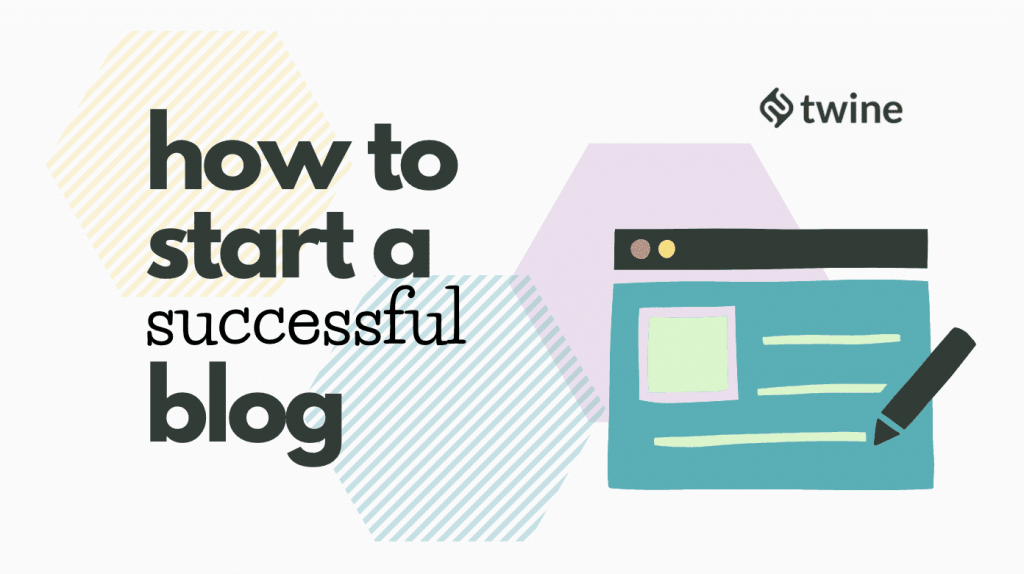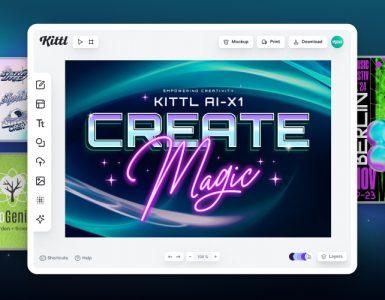
For more Creative Tools, check out the Freelancer Toolkit…
It’s 2022 and blogging has been alive and well for quite some time now. If you don’t know how to start a blog, you may be wondering if it even makes sense. Is it worth it? After all, a whopping 4.4 million new blog posts are published every day, so how would you stand out?
The truth is, blogging, content marketing, and SEO are powerful growth engines. Whether you run a small business or a multinational corporation, you need a blog to attract new readers and generate new leads.
For 2022, here is an easy way to start a blog.
Think about your target audience
Before you write even a single word of your first blog article, think about the audience that’s going to read your content.
Don’t just envision your ideal customer – analyze the customers that are actually buying from you and think about what kind of content they would like. Consider these audience factors:
- Age
- Location
- Occupation
- Education
- Spending habits
- + Any other aspects that may characterise your audience
The better you know your audience, the better your content will be suited to their needs. You’ll be able to choose the right keywords and topics, the right content format, the type of language, the level of (in)formality, and much more. You could also consider hiring a skilled content writer, who could do this bit for you…
If, however, you just launched a brand new product, you would need to write for your ideal target audience, instead of an existing one. Figure out your tone of voice and style, as your sales and traffic grow.
Do keyword research
When learning how to start a blog, you should know that your customers probably don’t want to read about the holiday you had last summer, or perhaps the sixteenth product update of the week.
Most customers start the journey to your blog through search engines such as Google. In fact, you’ll realize later that only a small percent are avid blog readers who go straight to your website and read your latest blog.
Therefore, it’s crucial to know what keywords your target audience is looking for. Once you know the right keywords, you can create the kind of content that will have a good chance of ranking well (on the first page of search engine results) for this keyword. Also, remember that each piece of content has a different place in the sales funnel.
Keyword research in itself is an art form, but the best place to get started is by using a good piece of SEO software. Tools such as Ahrefs or SEMRush let you research keywords, and show you the search volume (how many people search for a keyword) and the keyword difficulty (how hard it is to rank on page #1) for each keyword.
Mastering keyword research is a matter of trial and error, and would take a lot more time to cover than we have in this one article.
You should know that each article you create should have a specific keyword it is optimized for. Moreover, you can also use related keywords in navigation, title tag, and incoming links. Your domain name, however, doesn’t necessarily need to be related or relevant to your keyword. You want your content optimized – not over-optimized.
Know your business goals
If you’re wondering how to start a blog, you probably have a good idea of your business goals, and what you’re looking to achieve.
Perhaps you heard that content marketing provides an excellent ROI compared to other marketing channels. Or, maybe you just want to crush your competition because you know you can do better than them?
Before you learn how to start a blog, consider what your main goals are when you create content. A business blog is more than simply showing your creative side, it can be a superb addition to your marketing activities – perhaps even their central focus. Some goals that you can set include:
- Improving your organic traffic
- Increasing the number of marketing qualified leads
- Improving your website conversions
- Creating content for different stages of the sales funnel
- Providing your sales team with top-of-the-funnel materials
- And more
Writing a blog for the sake of writing one is a good idea, but, it’s even better when you have specific goals in mind. That way, you can set and track KPIs over time, to see whether you’re going in the right direction.
Learn about SEO
Search engine optimization (SEO) is crucial for any business because it directly impacts how many customers you attract from search engines. Before you start a blog, it’s a good idea to get some SEO knowledge behind you, so you can make the right decisions from the start. Having a better understanding of writing for both humans and search engines, will ensure your time is spent most efficiently.
In short, SEO is all about optimizing the blog posts you write so that they rank for your desired keyword. For example, if you’re starting a blog on bushcraft, you may want to write a post called “How to Start a Fire with Basic Tools”. Even if you have the best blog post in the world, it won’t rank if it’s not optimized for SEO.
Without going too deep into SEO, there are some great resources online to learn from, including:
If you have the budget for it, you can always opt for hiring an SEO expert to optimize your content and ensure it ranks better. However, it’s great to have at least a basic understanding of SEO for yourself. If nothing else, it makes it much easier to see which SEO proposal, from a freelancer or agency, makes sense.
Remember the main principle of SEO: search engines reward great content. You can use as many SEO tactics as you can think of, but nothing beats original and quality content.
Monetize your traffic
It’s a safe bet that 90% of the blogs out there aren’t created for the pure desire for writing. Most bloggers write for one purpose only – to (in)directly make some money. There are different types of blogs out there – company blogs (such as ours at Better Proposals), and blogs made by freelance writers who are working to build their own company.
If you run a company website and you want to create a blog, then the main idea of your content should be to tie in your offer to the content that you create. For example, we add calls to action in all of our blog posts so readers can go from blogs to our landing pages and our pricing.
On the other hand, if you’re a blogger who has no specific offer, the best path that you can take is to promote other companies’ offers and take a cut of the profit.
One of the ways to do this is called affiliate marketing, and it’s actually one of the most popular methods for making money online. Bloggers add links to their content where readers can purchase a product/app/service and the blogger gets paid a commission of the profit.
There are countless other ways to make money from your blog, including paid promotions, display ads, banners, sponsorships, and more.
Whichever path you choose, remember to put your readers first. If you’re using affiliate links to make a profit, publicly state that you’ll get paid a commission for each purchase. Not only will it make you more trustworthy, but it will also entice some visitors to purchase a product through you to support your blog.
Give your blog time
When you start a blog, you’ll be anxious to see your first readers come in and your content make a buzz. You want to see great numbers across the board: visits, bounce rates, sessions, conversions, and everything that comes with it.
But, one month after starting, all you hear is crickets. No one is reading the content you create and you’re just about to quit and go back to doing more sales instead.
Well, think again.
For most blogs, it takes 3-6 months before you see any major effects from the content you create. Remember how there are millions of blogs out there created every day? Each of them needs to get indexed and “read” by Google before it can determine what should rank well and what shouldn’t.
The content you create today will see its first major breakthrough in a few months. So, don’t lose patience if you don’t see results coming in immediately!
Topical authority is another thing you should be aware of, which is an important ranking factor in recent years. Simply put, the more your website covers a certain topic, the easier it will be to rank for similar keywords. For example, if you have a blog on unified communications with several hundred posts, your newest post about call center metrics will rank much more easily compared to someone who just launched their blog.
In short, have patience when you create your blog because it may take months before you start seeing the results of your hard work.
Wrapping up
Creating your own blog can be one of the most challenging and rewarding things you can do with your business this year.
If you set out to launch a blog, don’t get discouraged by millions of others doing the same. As long as you have something to say that your target audience will find useful, there’s a place for you in search engine results and your readers’ minds.
Ready to hire? Our marketplace of over 410,000 diverse freelancers has the skills and expertise needed to skyrocket your business. From marketers to designers, copywriters to SEO experts – browse the talented bunch here!








